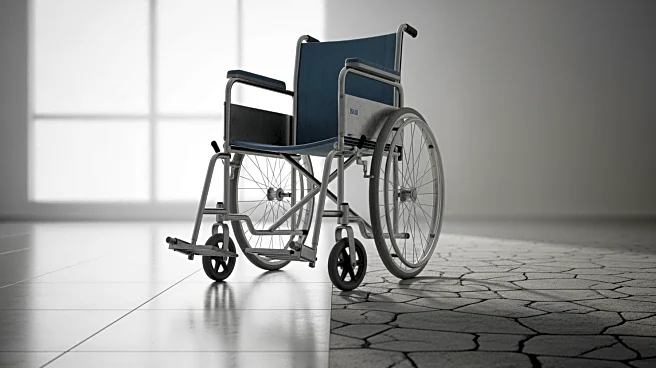What's Happening?
Israeli authorities are planning to deport at least 89 Palestinian patients and their companions from Gaza who are undergoing treatment in Jerusalem. These patients were evacuated before the war in Gaza began
two years ago, and many are now afraid to return to the enclave, where 94% of hospitals have been damaged or destroyed. The World Health Organization has been asked by the Israeli military to facilitate the transfer of patients early next week. Some patients have agreed to return, while others are being sent against their will.
Why It's Important?
The deportation of sick patients back to Gaza highlights the ongoing humanitarian challenges faced by Palestinians in the region. With most hospitals in Gaza damaged or destroyed, returning patients may face inadequate medical care, exacerbating health crises. This situation underscores the need for international attention and support to address healthcare infrastructure in conflict zones. The decision also raises ethical concerns about the treatment of vulnerable populations during conflicts.
What's Next?
The facilitation of patient transfers by the WHO is expected to occur early next week, with potential implications for international relations and humanitarian efforts in the region. The situation may prompt further discussions on healthcare access and rights for displaced populations. Stakeholders, including international organizations and governments, may need to reassess their roles and strategies in providing aid and support to affected communities.
Beyond the Headlines
The deportation of patients from Jerusalem to Gaza raises ethical questions about the rights of displaced individuals and the responsibilities of occupying powers. The long-term impact on healthcare access and quality in Gaza is significant, potentially affecting public health outcomes and societal stability. The situation may also influence global humanitarian policies and the role of international organizations in conflict zones.









